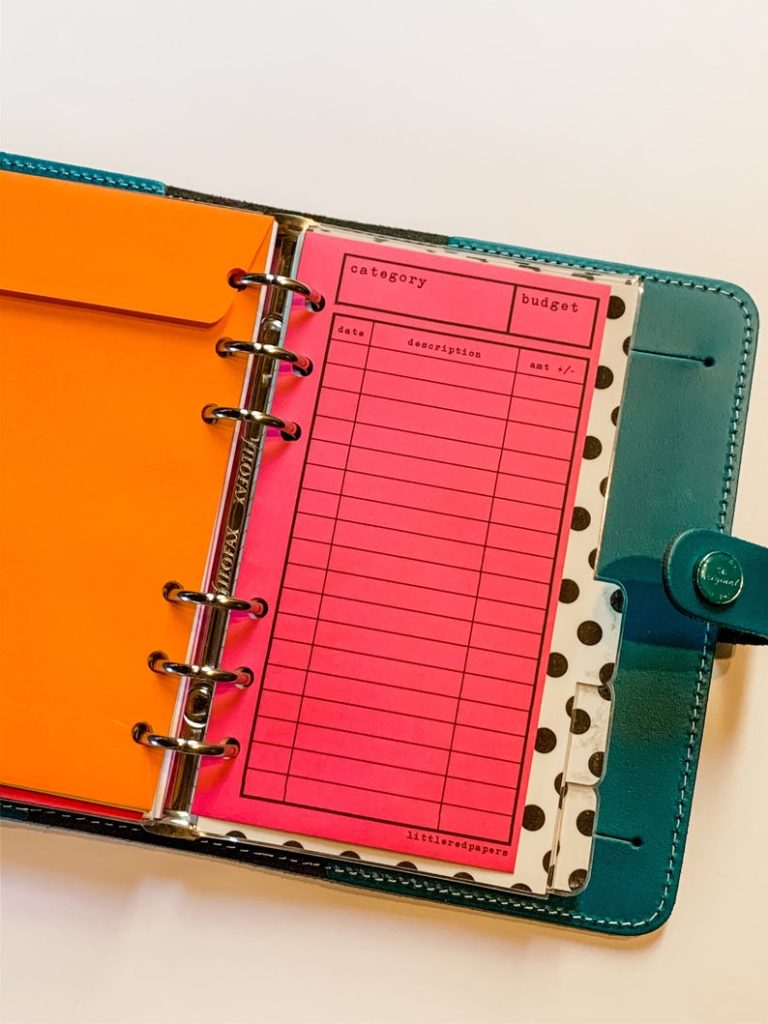
6 Effective Strategies to Always Pay Your Bills on Time
In this post I’m going to share with you 6 super easy ways to always pay your bills on time. If you’re struggling to pay bills on time, follow these effective strategies to never miss a payment again.
This post may contain affiliate links, which means I may earn a small commission at no extra cost to you. For more information, please see my disclosure here. Thank you for your support!
With payment history being one of the most heavily weighted components of your credit score, paying your bills on time is extremely important.
When looking at your overall credit history, the FICO® credit scoring model focuses on a few main factors, including the types of credit lines you have, and how much you owe on each of them.
Your payment history, or how often you pay your bills on time, accounts for up to 35% of your overall credit score!
This is why it’s extremely important to never pay bills late.
How to Always Pay Your Bills on Time
Since paying your bills on time is often easier said than done, I’ve compiled 6 super simple strategies to help you accomplish this every single month without much effort on your part.
These are the same strategies I used to finally organize my personal finances and start increasing my credit score.
Let’s dive right in!
1. Keep a Budget

The most effective way to make sure all your bills will be paid on time is to make, and keep, a budget.
I recommend making and keeping a budget where you list each pay date and the amount that you’ll receive that day.
You’ll also want to list the bills that will be due before you receive another paycheck.
Having this kind of monthly bills checklist will allow you to see exactly how much money you’ll have left each pay period.
This will be the amount you could allocate for discretionary or flexible spending, saving, and more.
Even better, switch to a cash envelope system for discretionary (or flexible) spending.
I personally like a color-coded cash envelope system like this one from LittleRedPapers because it makes it easy to manage the different categories.
You can get your own color-coded envelope system here:
Physically handling your money will help you think twice before buying anything, which will help you stay within the spending limits you’ve set for yourself. In fact, when you buy things with a credit card you end up spending, and paying, a lot more!
If you’d like to learn more about how to set up your budget, check out my FREE Quick Start Guide to Budgeting here. In it, I explain step by step how to create a budget that truly works!
2. Commit to Paying Your Bills First
It may sound like common sense.
However, many times the last thing to do when we get paid is to actually sit down, figure out what we need to pay and how much money we’ll have left for other expenses before going shopping.
To avoid this, be sure to check your budget and your monthly bills list before buying anything.
This way, you’ll be sure that you actually have the money you’re planning on spending.
I personally review my budget every other day or so, and especially before any upcoming trips to the store. This helps me make sure my monthly bills are covered each month before I touch the money for anything else.
Related Posts:
5 Quick Tips for a Successful Budget
How to Build Your Credit Score From Scratch
3. Set Up Automatic Payments
Automatic bill pay is your best friend.
It helps you meet your payment due dates without ever having to remember when everything is due.
Try to set up automatic payments for as many bills as you can.
For those bills that may be due to a person, such as rent, you can set it up as a transfer from your bank account to theirs.
This works best if both you and your landlord bank with the same entity. Even if that’s not the case though, it can be arranged without any fees in the majority of cases.
A note of caution:
When setting up automatic payments, be sure to note in your budget when the money will be taken out from your bank account. Who wants to get any overdrafts, right?
4. Use Calendar Reminders
For any other bill that you’re not able to pay automatically, set up a reminder on your phone. You can also use a visible magnetic calendar to remind you of the bill payments.
Be sure however, to set the reminder for several days before the bill is due. This way, you can properly account for transit time.
If you want to keep track of how you’re doing, and how your bill payments are affecting your credit score, I recommend getting an affordable credit monitoring service.
My favorite monitoring service is provided by myFICO. This is run by the same company that created the FICO score to begin with, so you’ll know you’re getting accurate information.
To start monitoring your credit, you can sign up with myFICO today!
5. Spread Your Due Dates Evenly
If most of your bills are due on the first of the month, for example, it could be difficult to know how much money you can actually spend and how much you need to allocate to bill payment on the paychecks you get later in the month.
To distribute your bills more evenly between the paychecks you receive, contact your lenders and request to modify the payment due dates.
A good rule of thumb is to only allocate one or two large payments to pay with each paycheck you’ll receive during the month.
6. Make Payment Arrangements
If you absolutely cannot pay one of your bills on time, be sure to notify your creditor.
Most times, they will be able to offer you at least some leniency to give you more time to pay that bill.
I have found this to be most successful when I’ve been proactive, given the creditor enough notice, and have shown good faith efforts to pay the bill on my part.
Frequently Asked Questions
Before I leave you for today, let’s address some of the questions readers have asked on this subject, shall we?
What is the Best Way to Pay Your Bills?
As we discussed, the best way to pay your bills and make sure you pay them on time is to set up automatic payments for as many of your bills as you can.
You can also set up reminders for all your bills on a calendar that you keep visible and accessible, or you can set up the calendar of monthly payments on your phone.
Personally, I set up a specific bill payment calendar on my phone that I share with my husband so we always know which bills are due when.
Speaking of your spouse, if there’s some bills that cannot be paid online, make sure you and your significant other are clear as to who is responsible for actually making the payment!
Lastly, one of the best ways to always pay your bills on time is to review your budget and your upcoming payments due at least a couple of times a month.
What Bills Do You Pay First
When you’re organizing your bills, make sure you always give priority to the bills that will affect your health and safety first.
This would be anything related to housing such as rent or mortgage payments, utilities, association dues, etc.
If you absolutely need a car to travel to and from work, and there’s really no other option, then you should also prioritize paying any bills related to your car, such as the car loan and insurance. You don’t want to lose your job because of lack of reliable transportation!
You should also prioritize food and health related expenses. It’s easy to postpone health-related procedures in an effort to save money, but I can tell you from personal experience that this will almost always cost you a LOT more money down the road (I once postponed getting a tooth sealed and then had to get a root canal, regretting everything!).
After you have covered the basics, you should move on to paying all your other debts, including credit cards and student loans.
If you don’t have enough money left to pay all your creditors, notify them and try to make payment arrangements. You may want to spread out whatever money you do have left over among all your creditors so they each get paid at least in part each month.
How Can I Pay My Bills Automatically?
Personally, I like to set up automatic payments with each creditor directly. Nowadays, most companies will allow you to set up recurring payments from your bank account or debit/credit card.
In this scenario, you would log into each creditor’s site and set up the payment.
A benefit of setting up the payments this way is that once it’s set up, the responsibility to withdraw the funds lies more on the creditor than on you. As long as there’s funds on your account, if there’s an issue with the payment, the creditor will be more likely to waive any fees.
The downside though is that your banking information will be spread out across multiple websites, making it more likely that your info could be compromised during a data breach.
Another way to pay your bills automatically each month is to set up an automatic bill pay schedule through your bank. In this scenario, you would give your bank the information for each creditor, including your account number with them, the amount to be paid, etc.
While this keeps your information more secure and centralized, there may be a long transit time from when your bank initiates the payment and when the creditor finally receives it and records it.
If you choose to use this option, make sure you allow ample time for this to happen so the creditor doesn’t charge you late fees.
Final Thoughts
Paying your bills on time can be challenging sometimes.
Between all the daily responsibilities we’re all juggling, it’s quite easy for a bill to slip through the cracks and go completely forgotten.
Unfortunately, just one late payment can have a significant negative effect on your credit score! This is why it’s so important to put systems in place to help you pay your bills on time on autopilot.
These strategies helped me tremendously to make sure that not one bill is ever paid late. I know they can help you too.
Paying your bills on time will take at least a couple of months to begin making an impact on your overall credit score.
As you stay on course with on-time payments, you’ll be able to see a significant increase over time!
What else do you do that helps you keep current on all your monthly payments? Share your tips with us below!




